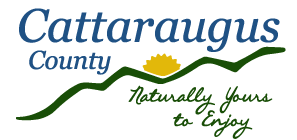NY-Alert is the notification tool for municipalities to let the New York State Department of Environmental Conservation (NYSDEC), the New York State Department of Health (NYSDOH) and the public know that a discharge has recently occurred. NYSDEC and NYSDOH determine what to do about discharges after consulting with the municipality. During peak recreational periods this may result in the declaration of a “No Swim” advisory until water quality improves.
NY-Alert is a web based portal that allows state, county and local governments, emergency service agencies, colleges and universities, and private partners to provide emergency alert information and private notifications to a defined audience. NY-Alert warns citizens of New York State of critical information/emergencies and provides timely information to protect lives.
Sign up for NY-Alert today to receive real-time warnings and emergency information directly via phone call, email, text message or fax.
Wastewater Pollution
In the event of untreated or partially untreated wastewater discharges, it is advisable to avoid recreation in the surrounding waterbodies. When there is a wastewater discharge the public should avoid canoeing, kayaking, boating, fishing, swimming or any other activities in waterbodies that may contain high levels of wastewater pollution.
How You Can Help Prevent Wastewater Overflows
There are many ways you can help reduce wastewater pollution from entering our waterbodies. Reducing water use and keeping everything but sanitary waste out of pipes reduces sewer backups and overflows and saves money in the long run.
Conserve Water
Conserving water can help reduce pollution of our waterbodies. More water used in our homes means more water treated at wastewater treatment facilities. Taking the following actions may help reduce the volume of water requiring treatment and decrease the potential for wastewater overflows during storms:
- Shut off faucets when not in use
- Repair leaking faucets or pipes
- Use rainwater to water your gardens by installing rain barrels
Don't Dump Fats, Oil and Grease Down Drains
The build-up of fats, oils and grease causes many collection system overflows. Grease, oils or fatty substances dumped down residential or restaurant kitchen sinks can build-up in sewer pipes.
What Not to Flush
Certain materials that are commonly flushed down the toilet or dumped into kitchen sinks can damage sewer systems and wastewater treatment equipment, even when they are labeled as flushable. Do not flush any of these items; throw them in the trash:
- Diapers
- Baby Wipes
- Personal Hygiene Products
